Virtual LMS revolutionized how organizations deliver and manage eLearning, but it may not always align with your brand identity or meet your training goals with some generic solution. At a time when learning personalization is on the rise, businesses, and educators look toward customized platforms that offer flexibility and scalability. Customize your Virtual LMS by inserting your branding into it, developing workflow adaptations, and creating interactive pieces of content catering to your audience’s needs. Let’s see how customization helps make one dynamic eLearning ecosystem and how Luvina can help.
What is the Virtual Classroom LMS System?
The virtual LMS is an interactive learning environment that is destined to manage, deliver, and track training programs while integrating all kinds of digital learning tools for remote education. Unlike traditional LMS solutions, these platforms offer interactive features to enhance engagement and accessibility for both educators and learners.
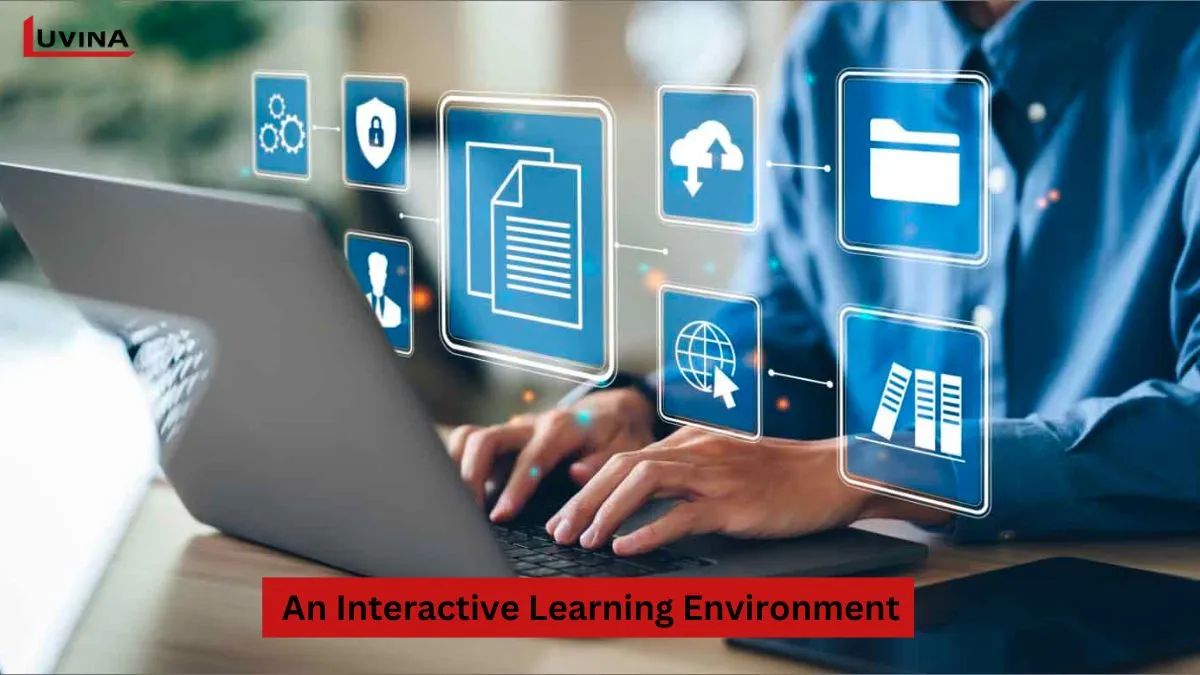
One of the most important developments in online education is the emergence of LMS with virtual classroom capabilities. It allows for real-time interaction, thus building up collaboration between instructors and learners irrespective of geographical location. Organizations and educational institutions can create a more immersive and effective learning experience by integrating live sessions, multimedia content, and interactive assessments. Be it corporate training or an academic institution, virtual LMS ensures seamless communication, flexibility, and personalized ways of approaching education.
Benefits of virtual LMS platforms
A virtual learning management system uses an easy and effective way of training and educating students and employees alike through more accessible, more engaging, and better scaling learning opportunities. Digital tools, interactive content, and real-time collaboration integrated into virtual learning management systems enhance the learner experience and improve organizational effectiveness. The following are some key benefits of a virtual LMS implementation:
- – Improved learner engagement: Through interactive features, multi-media content, and live discussions that will keep learners motivated and involved in the learning process.
- – Improved collaboration and communication: With discussion forums, group activities, and integrations provided by the likes of Zoom and Google Meet right on the system, interactions flow easily.
- – Customization and personalization: The ability to customize the platform to suit branding, learning objectives, and industry-specific needs is a much more effective way of training.
- – Scalability and flexibility: A virtual LMS follows the growth of business and educational needs; it is suitable both for small teams and large-scale training programs.
- – Improved compliance and localization—meaning that the training can be crafted to suit every region, language, and regulatory requirement of the world.
- – Higher ROI: Organizations can better optimize resources by streamlining their processes, bringing down costs, and maximizing learning.
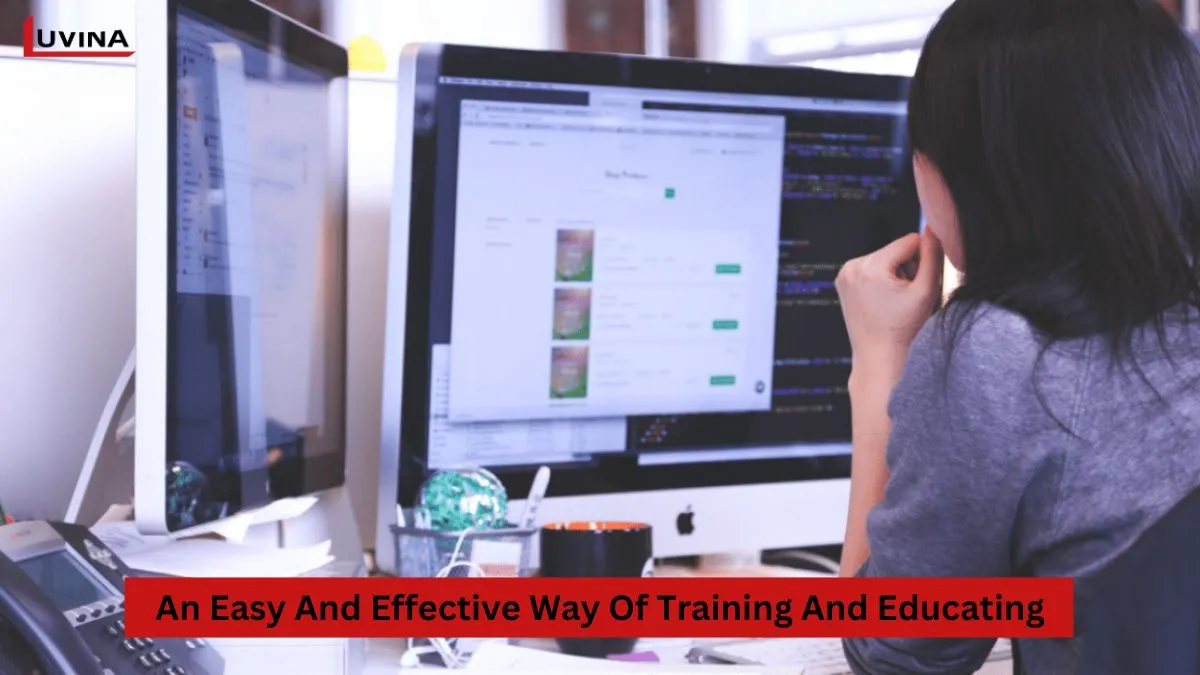
Best features of a virtual learning management system (LMS with virtual classroom)
The virtual LMS should ensure a seamless interactive and customizable learning experience that could address the diversifying educational and corporate training requirements. Herein are some key features that would make our virtual learning management system platform outstanding:
1. User interface (UI)
A well-structured LMS with virtual classroom functionality is supposed to boast an intuitive, branded, user-friendly interface that could enhance learning. We offer seamless UI to make sure that learners can log in easily and navigate hassle-free around the platform to the relevant content without frustration. Besides, it allows customization, which means including one’s brand elements, such as logos, color schemes, and typography, cohesively into the learning environment.
Added to this, personalized learner portals, straightforward navigation, and single-step sign-on features all help them become more engaging and user-friendly. A clean, minimalist design will make it easy for learners to focus on the training rather than wrestling with the platform by way of intuitive filters and menus.
2. Course content management
We offer a virtual classroom LMS platform with powerful course content management features designed to create a structured and engaging learning experience. Our platform allows administrators to seamlessly upload and organize various learning materials, including videos, presentations, and PDFs, ensuring easy access for learners. With customizable learning paths, organizations can personalize content to fit different training needs.
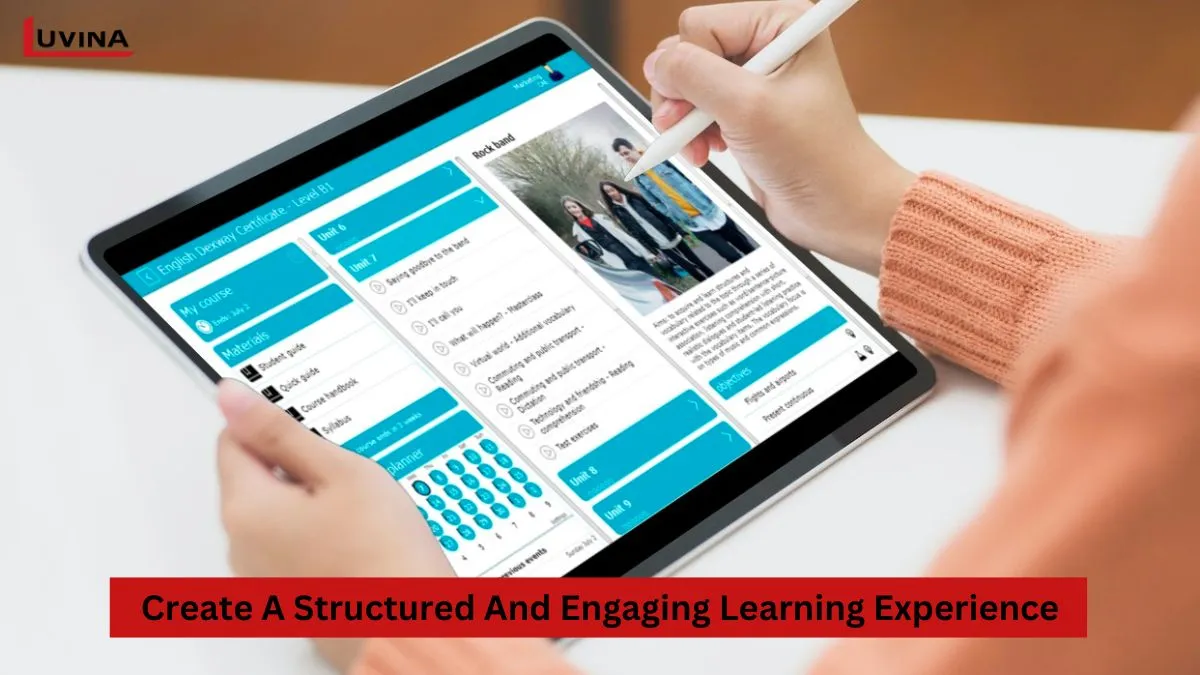
Additionally, built-in assessment tools enable the creation of quizzes and evaluations aligned with specific learning objectives. Role-based access control ensures efficient course assignment and progress tracking, making learning more adaptable and effective.
3. User roles and permissions
With our customized virtual LMS, organizations can manage user access by defining certain roles and permissions. Our system allows for a variety of well-defined user roles, such as administrators, instructors, and learners, whereby users will only view features relevant to their role. Granular permission settings allow setting up specific security around content viewed, course assignment, and managing data, leading to enhanced operation efficiency. Custom access permissions enable businesses and educational institutions to realize smoother training processes without sacrificing security and order in the learning environment.
4. Reporting and analytics
Our virtual LMS offers a powerful reporting and analytics tool that helps organizations trace the progress of learners, see their level of engagement, and provide the best training effectiveness. This also gives administrators the chance to view different metrics regarding course completion rates, assessment scores, and user activities through customizable dashboards. Detailed reports help spot learning trends, show weak points, and align training with organizational objectives. Therefore, exporting in various formats and filtering reports according to certain criteria ensures that decision-makers have the insights they need to elevate the learning experience and maximize training ROI.
5. Integration with third-party tools
An integrated LMS with virtual classrooms should easily integrate with third-party tools to effectively blend training with ease and effectiveness. Our software allows users to make API-based integrations; therefore, businesses can integrate with HR systems, CRMs, and ERPs for easier data syncing. Video conferencing tool integration is meant to enhance the process of live classes, and content integration will allow embedding multimedia resources from sources such as YouTube and Wistia. Integrate your LMS with key business applications to reinforce workflow automation and ease administrative load while offering more integration in learning.
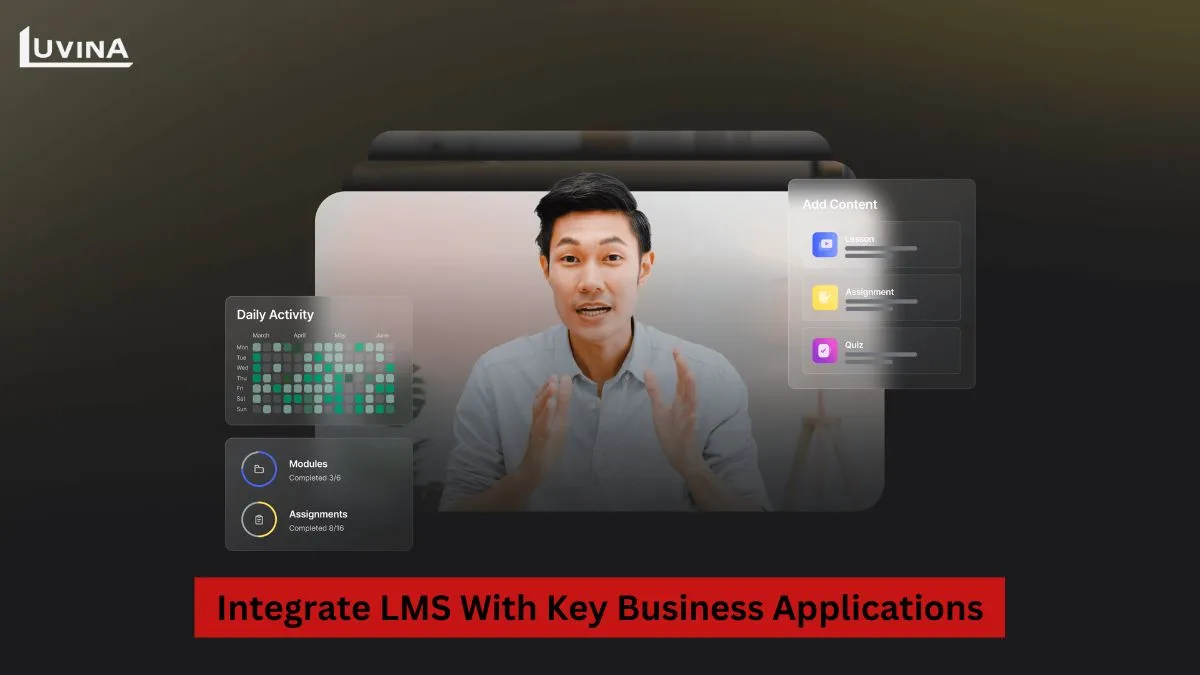
6. Game-based learning & gamification
Game elements embedded in a virtual LMS engage learners in an interactive learning process. Gamification enhances motivation through the use of points, badges, and leaderboards, among others, that encourage learners to participate in striving for achievement. Immediate feedback mechanisms help users track their progress and reinforce knowledge retention.
More than just rewarding, game-based learning places learners into real-life situations in which to develop their skills with no real-world risk. Whether by leaderboards in a competitive setting or a tailored reward system, gamification accommodates various needs – from onboarding and soft-skills training to continuing professional development. Creating a feeling of progression and achievement on our platform allows the overall dynamic and effectiveness of the learning process.
7. Mobile learning customization
A modern LMS with virtual classrooms should give seamless mobile access to enable learners to use training materials anywhere and at any time. The fully responsive, mobile-optimized layout for both smartphones and tablets ensures that the interface automatically adjusts to screen size, making sure navigation is smooth and easy. Push notifications enhance engagement by providing timely updates on course progress, deadlines, and new content.
This is extremely useful for remote teams and mobile employees; the ability to learn anywhere, anytime removes the constraint of desktop dependence. By focusing on mobile customization, organizations can create an inclusive and productive learning environment that meets the demands of the modern digital workforce.
Why choose Luvina for your virtual LMS development?
Having acquired over 20 years of experience in learning technology, Luvina provides custom solutions to enable organizations to respond to training challenges. Our team then works closely with the clients to understand their needs and makes sure that their goals and budgets align with the virtual LMS development solutions provided.
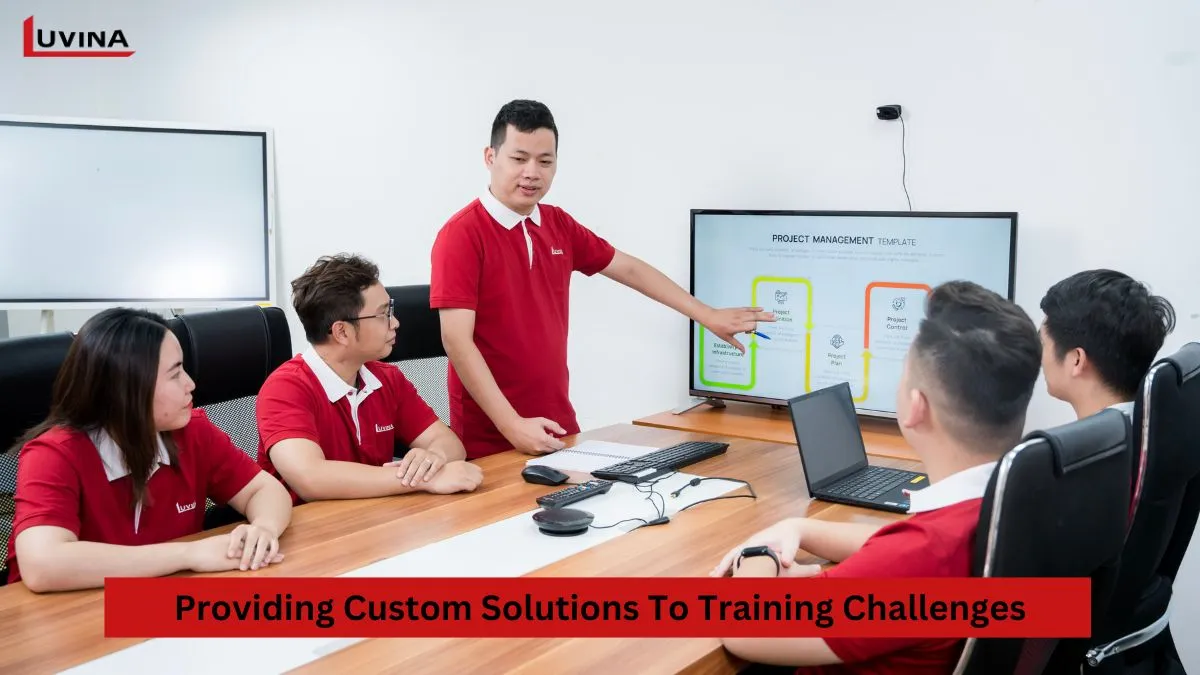
Luvina provides a range of services related to data gathering and reporting, including user-friendly interfaces for tracking learners and compliance reporting. Our expertise extends to various industries that scale with your business and feature adaptable LMS platforms. We address industry regulations and have cost-effective, high-quality solutions.
Beyond technology, Luvina stands behind your success. Intuitive LMS platforms are designed for ease of use, complete with comprehensive tools for administrators and learners alike. We’ve created personalized support and a customer-centric approach so that each organization gets the best value and functionality from our solutions.
Conclusion
Given increasing personalized learning demands, organizations have to go beyond standard solutions in their quest to build better and more engaging training programs. A custom virtual LMS, engineered specifically for your unique needs, promises smooth integration into your corporate identity, along with increased user participation and high levels of learning engagement. Whether you strive for better corporate training or richer academic experiences, investment in customizable LMS software development is empowering through which you can shape the future of learning.
Luvina offers flexibility and scalability for eLearning solution development. Contact our team today to learn about your possibilities.









Read More From Us?
Sign up for our newsletter
Read More From Us?
Sign up for our newsletter